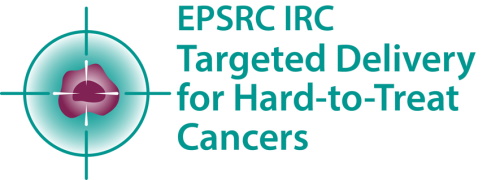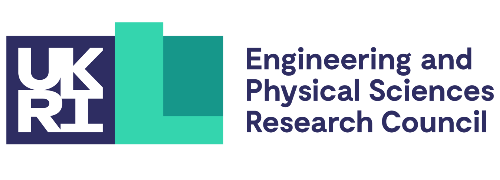
This month’s Cancer in Sight blog brings focus to the work of Prof Duncan Jodrell, Professor of Cancer Therapeutics at the University of Cambridge. As one of the clinical leads for the IRC programme, Professor Jodrell reflects on the challenges of pancreatic cancer, one of the three hard-to-treat cancers targeted by the IRC’s multidisciplinary team.
There is urgent need for new therapeutics for patients diagnosed with pancreatic cancer because current outcomes are so poor. According to figures from Cancer Research UK, less than five per cent of people diagnosed with this cancer will be alive ten years later (1). This stark statistic is because only 10 to 20 per cent of patients will present with disease that can be considered for an operation. Of this 10 to 20 per cent, sadly up to three quarters will develop recurrent disease which will lead to their death.
I am also hopeful that at least one of the IRC drug delivery technologies will reach the clinic and that our work will help to improve outcomes. If pancreatic cancer could become a disease which people can live with for a significant period of time, it would certainly be a welcome step. Extending life – as long as it’s good quality of life – is invaluable. Prof Duncan Jodrell, Professor of Cancer Therapeutics, University of Cambridge
Early detection of pancreatic cancer is also part of the challenge. Patients present with non-specific symptoms and therefore often have disease which has spread either locally and infiltrated tissue which makes it difficult to resect, or the cancer has already spread throughout the body. Pancreatic cancer seems to be intrinsically resistant to standard chemotherapy agents and does not respond to the emerging immunotherapies which have made huge differences in other tumour types. Only one to two per cent of patients with pancreatic cancer benefit from immunotherapy currently, the vast majority don’t.
I joined the Pancreatic Cancer Centre at the University of Cambridge to bring my experience and expertise in the development of new therapeutics to this field – I previously worked at Edinburgh where my focus was colorectal cancer. As a consultant in medical oncology, I am interested in chemotherapy approaches to the treatment of patients with cancer. Currently I run an early phase experimental therapeutics clinic where I treat patients, and I also meet with patients who are enrolled on studies that I am contributing to at the Clinical Research Centre at Cambridge University Hospitals NHS Trust.
Any development of a new therapeutic needs to have a clearly defined clinical line of sight. Technologists want to know what the problems faced by clinicians are. We can make it clear to them what it is they need to overcome to make their novel therapeutic approach different and hopefully successful compared to other approaches.
My involvement with the IRC came through an initial collaboration with Dr David Fairen-Jimenez, who leads the development of novel high-capacity nanoparticular delivery vehicles with targeting capabilities to carry drugs to exactly where they need to be for optimum effect. This research is promising because we could potentially think about putting novel biological agents into the particles to target the known genetic drivers of pancreatic cancer, which still today are effectively undruggable. We currently don’t have targeted agents for the proteins KRAS and p53, both of which are very commonly mutated in pancreatic cancer. My hope is for drug delivery systems that can target those specific proteins and therefore provide more selective therapies against the cancer, with less systemic toxicities.
We have identified particles which might be suitable for delivery to patients at some point in the future. We have also started work on loading those particles with drugs. We now need more laboratory studies in the models we use to show they are selective against cancer cells. We are getting through some of the early steps along the drug development pathway but there is still a long way to go. That said, everything we have done so far indicates that it’s worth progressing.
We must keep working to develop new therapeutics. For the vast majority of patients with pancreatic cancer, we are still using the same combination chemotherapy that we began using 10 years ago when it was shown to have a modest benefit compared to a single-drug approach – the standard practice has not really changed in a decade. Pancreatic cancer is the tenth most-common cancer but is the fourth most common cancer killer and figures from the American Association of Cancer Research suggest that, because of the lack of progress in this disease, it will be the second most common cancer killer by 2030. There are now quite effective treatments for a number of cancers that will at least delay if not cure the disease. We just don’t have that array of therapeutics for pancreatic cancer – it’s a very difficult area.
Cambridge is part of the Precision Panc initiative which is working to type tumours and build a portfolio of trials for specific molecular sub-groups of patients who will benefit from particular targeted treatments – some of those studies are starting to come through. It’s small steps. I am also hopeful that at least one of the IRC drug delivery technologies will reach the clinic and that our work will help to improve outcomes. If pancreatic cancer could become a disease which people can live with for a significant period of time, it would certainly be a welcome step. Extending life – as long as it’s good quality of life – is invaluable.
• Professor Duncan Jodrell is also the Director of the Cambridge Cancer Trial Centre, and co-leads the Cambridge Experimental Cancer Medicine Centre


